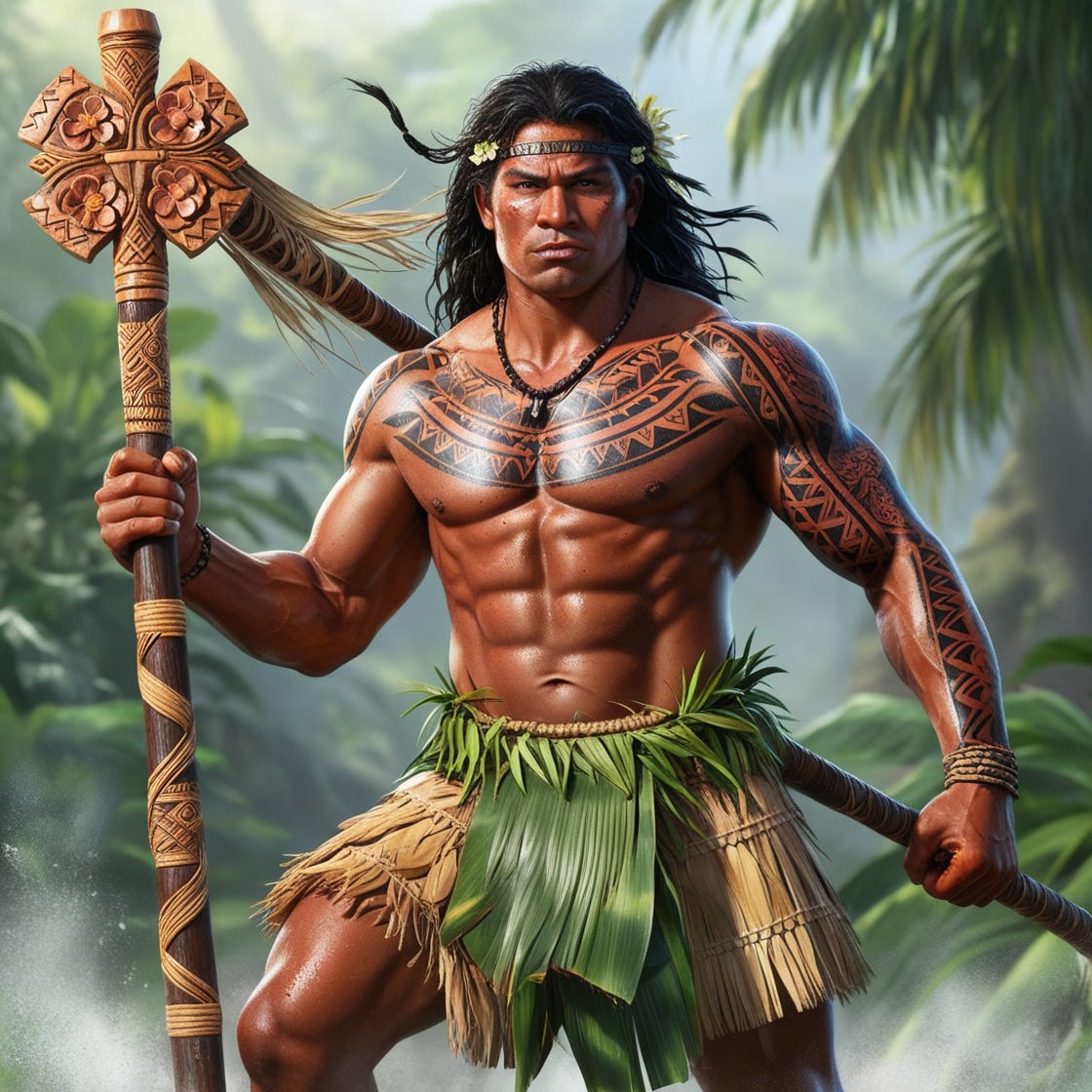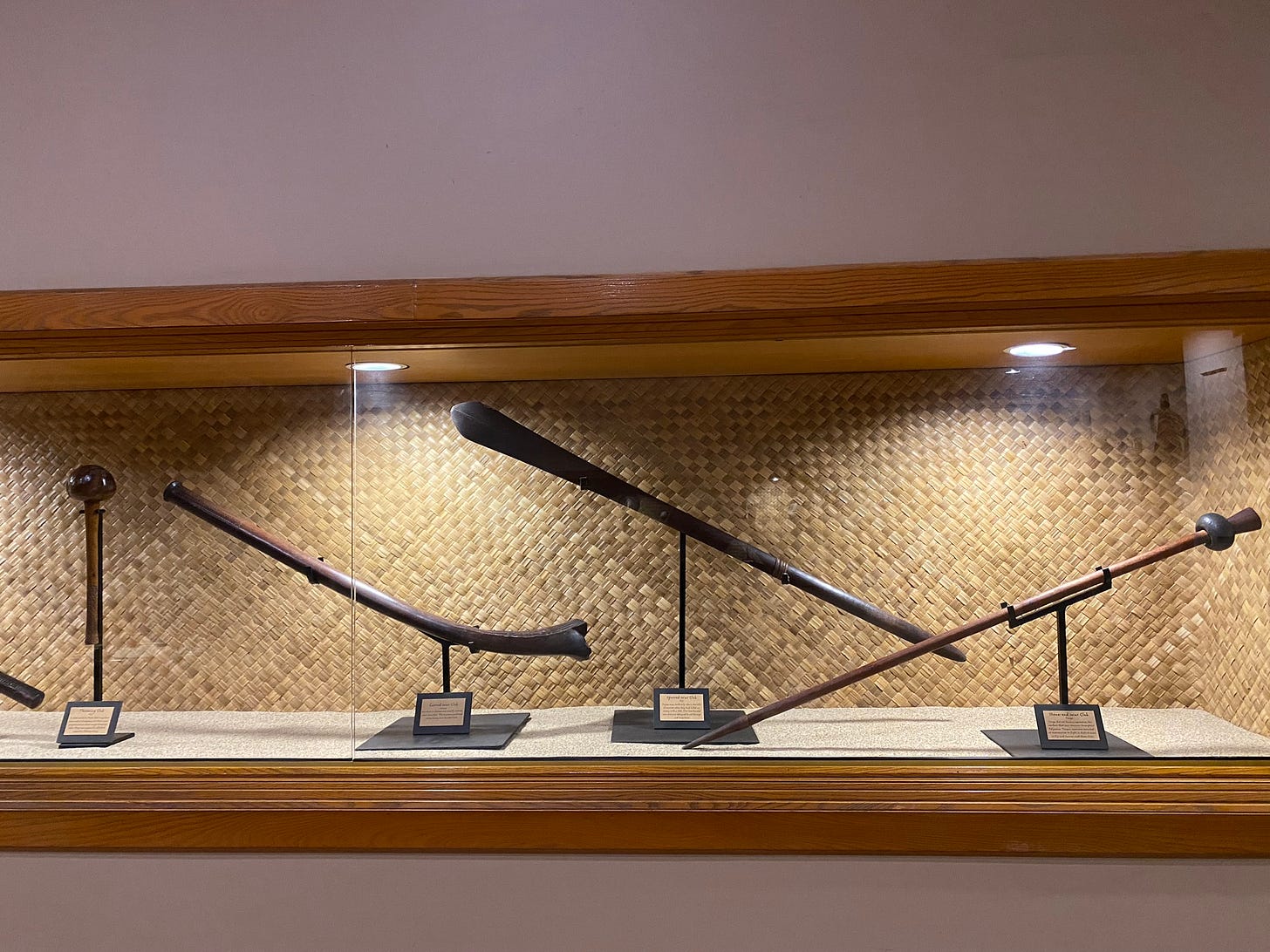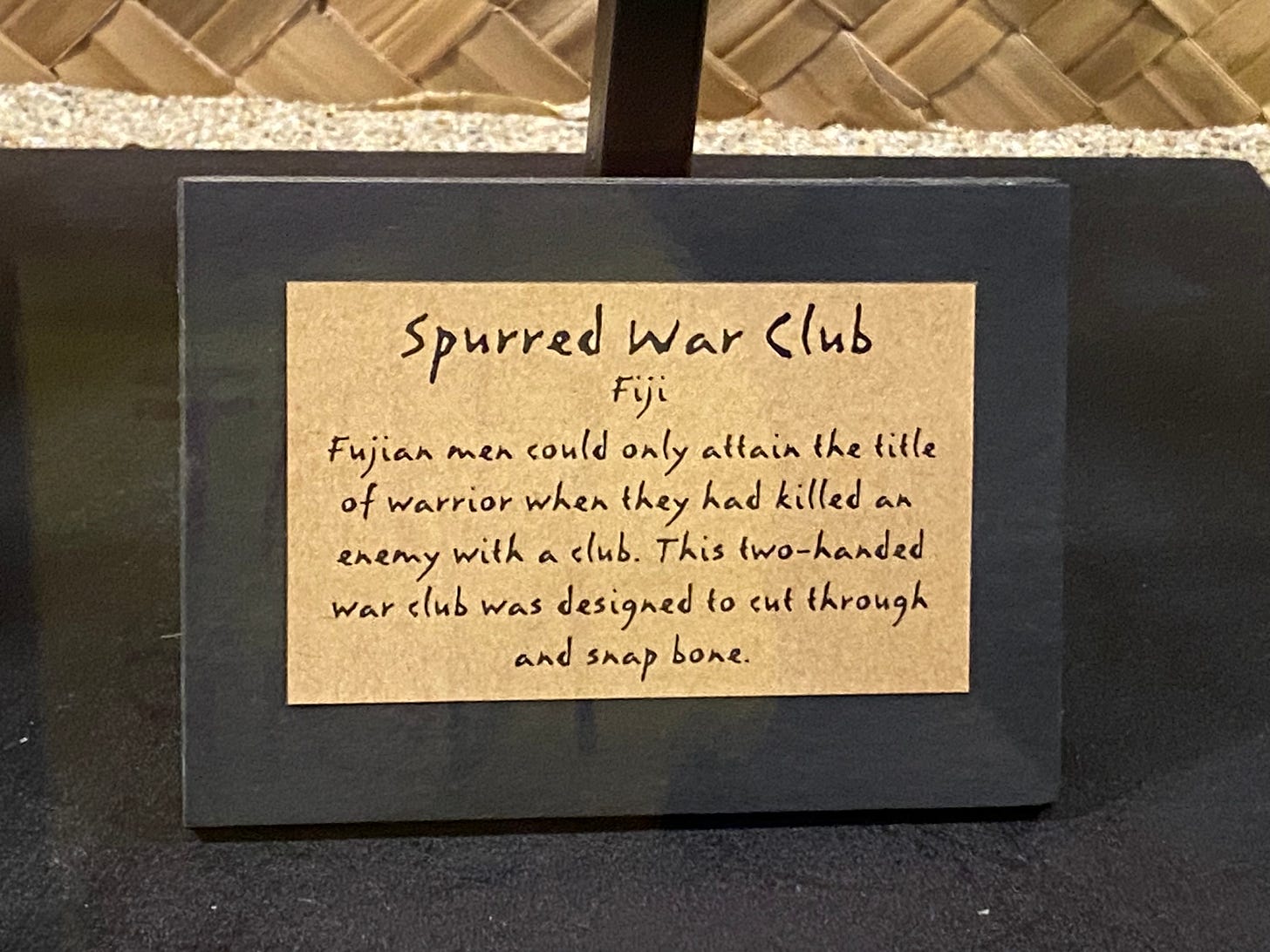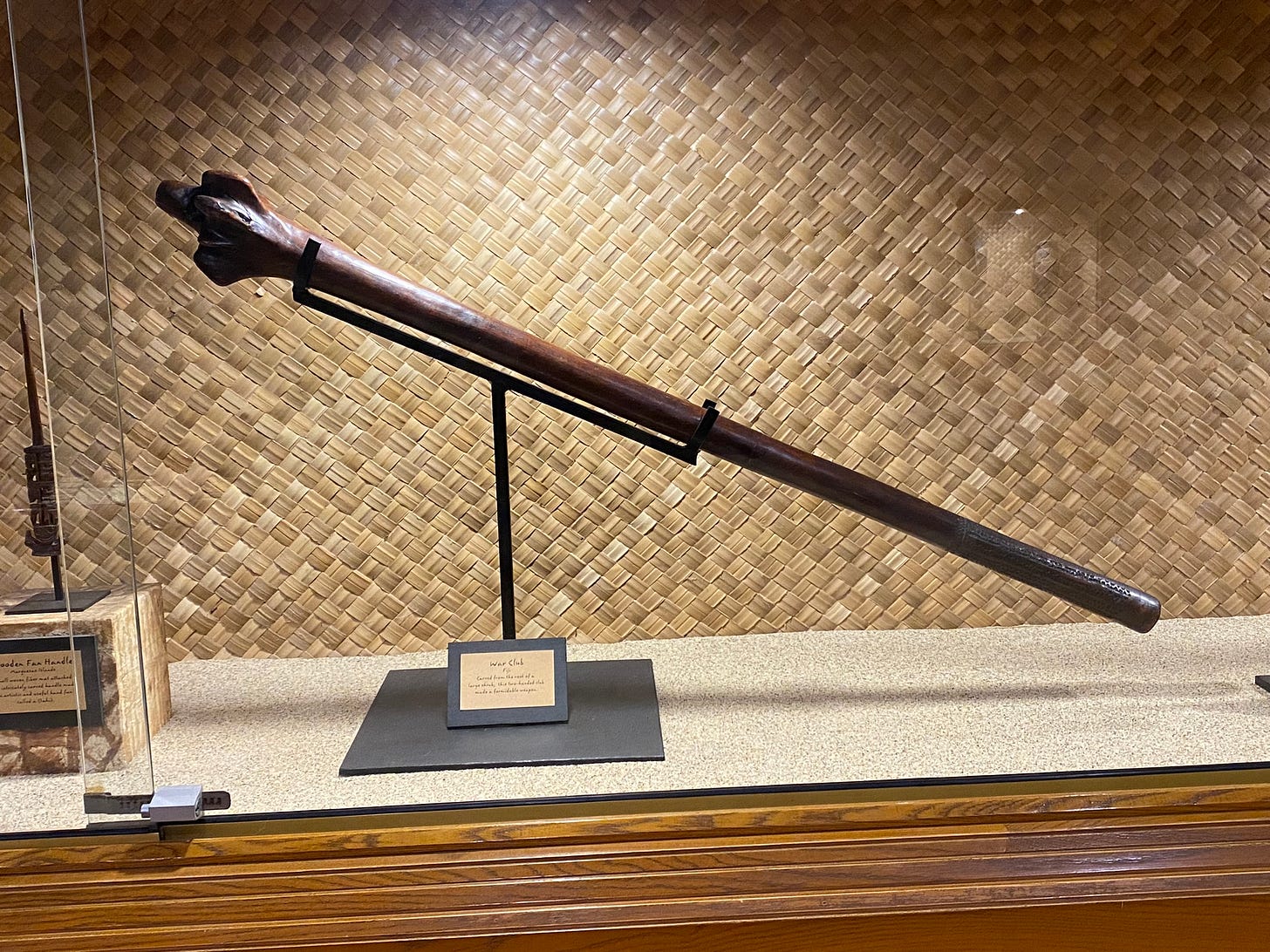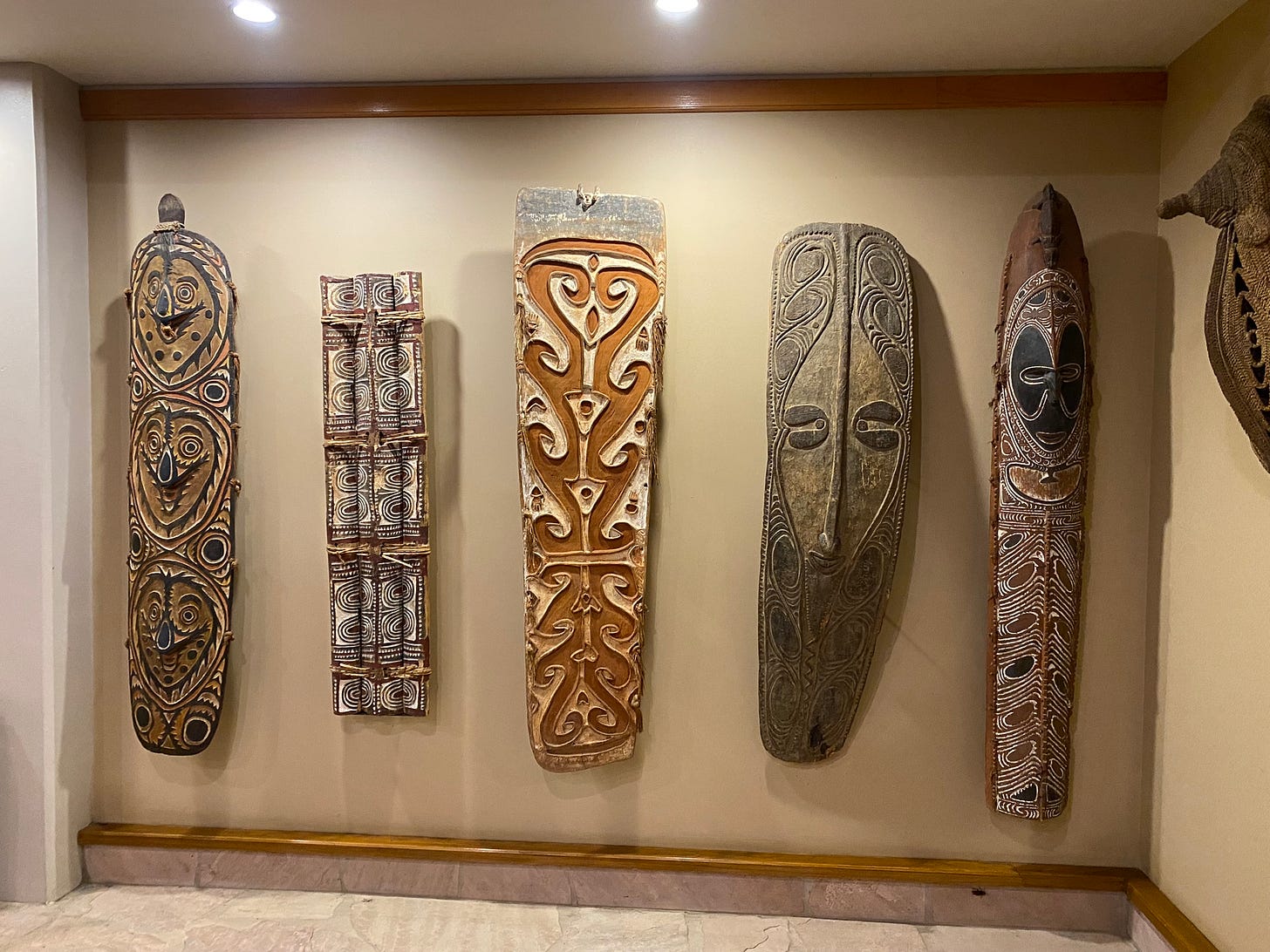Indigenous Warriors Killed Other Warriors for Status
An uncomfortable truth that was ubiquitous around the world.
Hawaii is one of my favorite places to visit. It’s in a race with London, which London is currently winning by one. When in Hawaii, I particularly like visiting Waikoloa on the big island, which is both a pretty beautiful resort area, but also is awash with really cool history. I’d written about Hawaiian history in an essay a couple of years back, and the divergence between the complicated, often brutal native history, and the political narrative that had (in some ways understandably) evolved in more recent decades. Put simply: people often lie about history to make political points about today.
I’ve been concerned about the way the indigenous history has evolved. To be clear, I love and have a deep respect for indigenous history, whether Hawaiian or North American (the two areas I’ve read about the most), and feel that these cultures are fascinating and complicated, just as for any other area of human societal evolution. But I think too that much has been lost in a simplistic narrative by which indigenous people supposedly lived in an Eden-like utopia of democracy, egalitarianism, and peace before the White Man arrived and ruined it all.
The resort I often stay in has its own set of museum-like displays about Polynesian culture and these are worth visiting. I particularly like this little museum as they seem not to have gotten the memo about what’s politically correct to say about indigenous cultures. As such, you can still see weapons displayed with the explanation “Fujian men could only attain the title of warrior when they had killed an enemy with a club.”
This statement reflects both an unpleasant and universal truth about humanity until, really, the latter half of the 20th century. Simply, much of male prestige was wrapped up in military prowess which, itself, was mainly concerned with violence toward other men. Even simply being in the military is not as awe-inspiring as having been to war and killed enemy warriors. This was as true in Hawaii (or Fiji) as it was in Sparta, or among the Comanche, or among the Shogun of Japan, etc. The British phrasing of “having a good war” still meant to have accomplished glory (presumably with a minimum of psychological trauma to oneself) through the mid-20th century.
The revisionist history of indigenous societies, often portraying them as behaving not too different from today’s gender studies majors, does these societies a disservice. First, it infantilizes their rich and admirable history, and yes that sometimes includes embarrassingly brutal or violent bits. Second, it can cause us to turn a blind eye to very real problems within these societies today, whether crime, alcohol and drugs, domestic violence, etc. Third, it does very little to actually help these communities with their current challenges, whether poverty, issues related to climate change, or difficulties assimilating within the larger modern societies descended from the people who conquered these lands hundreds of years ago.
I think this is often a problem with “moral” narratives of all sorts…they actually get in the way of solving real problems in a productive way. Thus, we get “land acknowledgements” but continued poverty and poor infrastructure in many native communities. I think too; by making history unpleasant and aversive, and attaching it too indigenous communities, activists often forget a fundamental aspect of human psyche…people tend to avoid things that make them feel bad. So instead of shaming people over things done generations ago, it is likely more constructive to find ways to make people feel good about being helpful today.
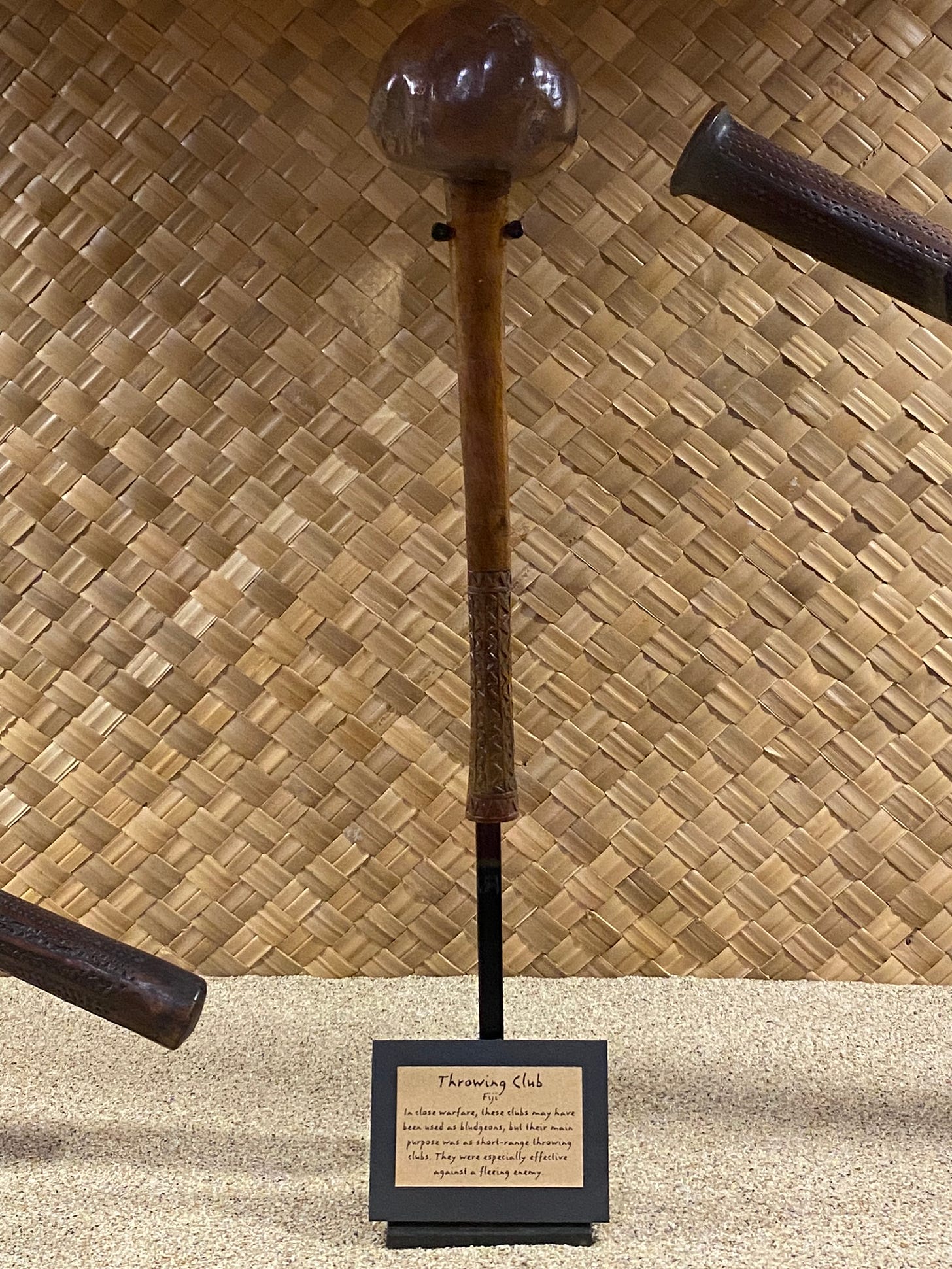
In the meantime, we can acknowledge Hawaiian history is pretty cool without scrubbing it clean of anything that might be the slightest bit embarrassing.




